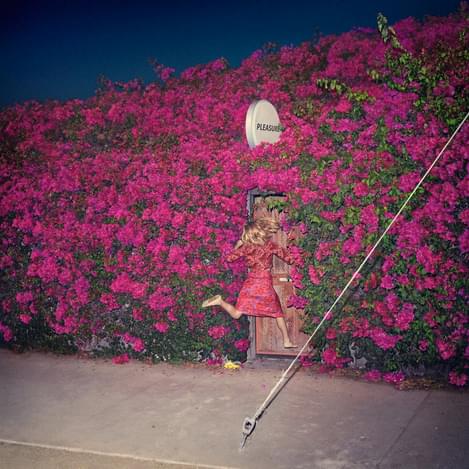Feist’s tremendous fifth full-length is bluesy, bare and very raw
"Pleasure"

That wasn’t in terms of the write-ups it received - an average of 81 on Metacritic is testament to that - but more to do with how much attention it seemed to attract when set against its predecessor, 2007’s The Reminder. Granted, Metals didn’t have a single that hit it big in an iPod (remember them) advertisement like “1234” did and, granted, it wasn’t the most immediately accessible listen by any stretch of the imagination. But it was totally sumptuous, rich and deep and thoughtfully constructed. It was heavy on the percussive side and, instrumentally, probably the lushest and most varied thing that Feist had ever turned out.
Her new LP, Pleasure, is the opposite. As both a person and an artist, she remains fascinatingly inscrutable in an age when we’re used to running commentaries on social media encompassing everything our favourite musicians are up to at any given moment. Accordingly - and even in the light of a rare clutch of interviews she recently gave - we can’t really know whether this album is a reaction to the oddly flat reception for her last one, to events that have unfolded over the past six (!) years in her private life, or a mixture of both. She’s certainly reacting against something, though, and Pleasure is undoubtedly a kick back against Metals. It’s minimalist, and it’s very, very raw. In the best possible sense, it’s an open sore of a record.
The title track opens proceedings and wastes little time in setting the tone. Much of Pleasure plays out behind the carefully-crafted fog of a slightly rough production style, miles away sonically from Metals’ measured polish but similarly studied. If you remember the hazy sound of The Reminder’s “The Park”, you’re halfway there; it’s a slightly less grainy version of that. There’s seldom outright clarity in Feist’s voice; there’s always a slight echo on it, a bit of added effect hanging off it throughout. When the first song begins, she sounds tentative and reserved for all of about 110 seconds. Then, the guitar rips in, and does so with proper menace.
The album is compositionally slight all the way through, although that doesn’t mean it isn’t adventurous both in terms of sound and ideas. Towards the end of “Century”, Jarvis Cocker turns up in a spoken-word role. “Baby Be Simple” is hardly there, mostly just Feist and the guitar, but the landscape is changing constantly - one minute it’s an acoustic ballad, and then the next, there’s a ghostly synth finding its way in, and the vocals are layered in harmonic fashion. “Get Not High, Get Not Low” is by turns vulnerable and swaggering as she both wrestles with and embraces the thought of getting older.
It might be the closer, “Young Up”, that best ties the album together with a bow. Again, it’s a reflection on aging, which seems to the central idea on Pleasure; even when she’s only shooting for good old-fashioned heartbreak (“I Wish I Didn’t Miss You”), it still feels like Feist’s looking at it through the lens of growing longer in the proverbial tooth. “Young Up” tackles the concept head on and is largely comprised of voice and languid drums; adding colour are flashes of bass and synth. It sums up the fact that Pleasure is basically on old-fashioned blues album, on every front - its subject matter, the tone of the guitars, and its lack of regard for convention. Even though it’s Feist’s barest full-length, it’s also her most playful, her most consistently inventive. On the surface it sounds wafer-thin, but at its core there’s no shortage of heft. It’s tempting to wish she was more prolific, but if this is how long it takes to turn out something as well-rounded as Pleasure, we should be happy for Feist to take her time.
Get the Best Fit take on the week in music direct to your inbox every Friday

Tunde Adebimpe
Thee Black Boltz

Julien Baker & TORRES
Send A Prayer My Way

Bon Iver
SABLE, fABLE





